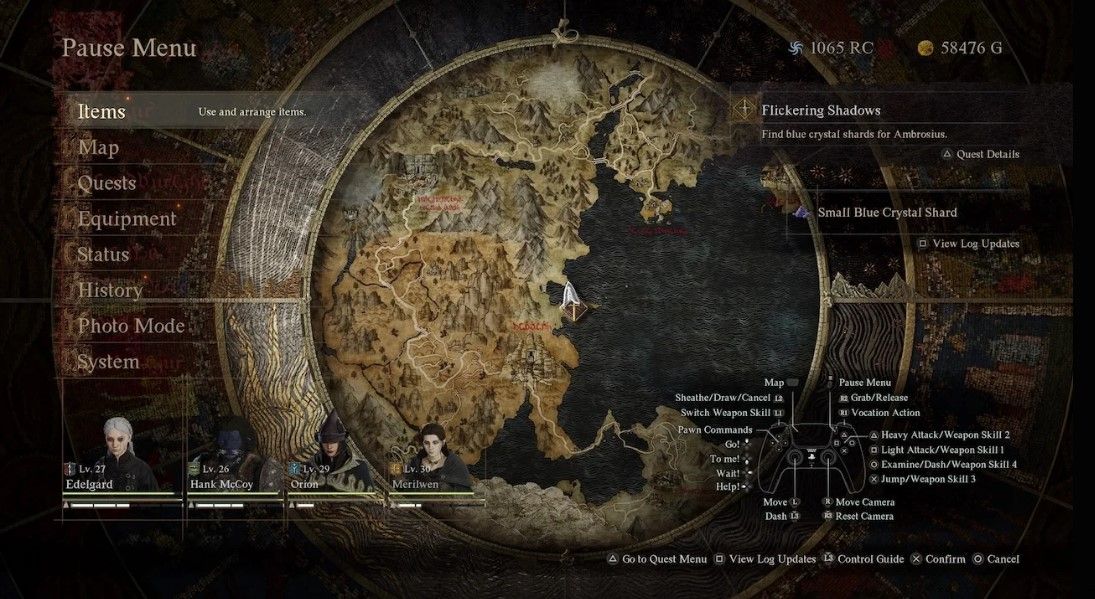
Immersing yourself in the expansive world of Dragon’s Dogma 2, it’s easy to let the in-game days slip by unnoticed. Capcom’s action-packed RPG is brimming with adventures that can unexpectedly extend from dawn till dusk. One moment you’re setting out from an inn, embarking on a new journey, and the next, you find yourself sidetracked in a labyrinthine cave, only to emerge under the cloak of night. This seamless flow of time can be tricky, especially when specific quests are time-sensitive, necessitating your presence at certain hours, lest you risk the chance of failing them.
The game cleverly integrates a timekeeping mechanism that, while not immediately obvious, serves as an essential tool for players. Within the realm of Dragon’s Dogma 2, the pause menu becomes more than just a space to manage quests and gear; it is home to a discreetly placed clock. This timepiece is ingeniously masked within the menu’s design, featuring a dial that encapsulates the cycle of day and night, mirroring medieval “canonical hours” which marked periods for prayer and labor in olden times.
This subtle integration means that while the game doesn’t overtly display the time in a digital or analog format, the positioning of a marker atop the dial provides a rough estimate of the time. This is particularly handy since NPCs in the game typically request your presence within broad timeframes, such as “by midnight” or “from dusk till dawn,” making the need for precise timekeeping less critical.

For players keen on maximizing their in-game efficiency or ensuring punctuality for crucial quests, this hidden clock is invaluable. Should you prefer not to wander the lands battling foes before a significant quest, the game offers several ways to expedite time. Whether choosing to rest at an inn or campsite, which also replenishes health, or simply opting to idle at a bench until a specific part of the day, the game accommodates various methods to control the passage of time to your advantage.
In summary, Dragon’s Dogma 2 intricately weaves a timekeeping element into its gameplay, allowing players to navigate their quests with a better sense of time, all while maintaining the immersive experience of the game’s expansive world.








By Andrej Kovacevic
Updated on 23rd April 2024